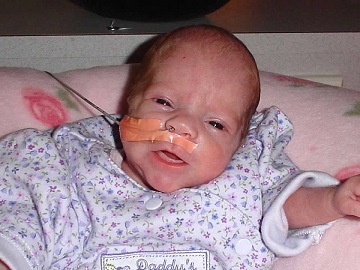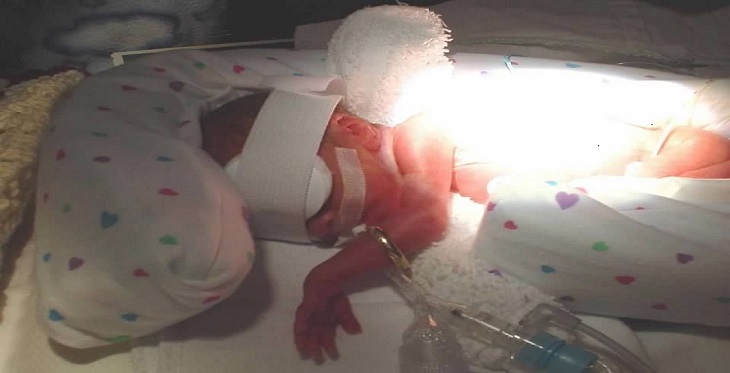Imagine delivering a baby at 24 weeks gestation, or three months early. You deliver at the hospital closest to your house or the one that your OB/GYN recommends. Exploring the quality of care outcomes in that facility are not at the forefront of your mind. Wanting a healthy baby, or even a baby that simply survives, free of life-altering complications, becomes your goal. Quickly after this baby is born, he is whisked away to the neonatal intensive care unit (NICU), and it may be hours or sometimes even days before you see him again. The clinicians in that unit are trying their very best and they are providing excellent care: or are they? How do you know? Without questioning the intent or skill of clinicians, the data show that the quality of NICU care varies from unit to unit, and one complication in particular can vary widely: necrotizing enterocolitis (NEC). For this condition, there is a core of evidence-based prevention interventions that are essential to reduce the risk of contracting NEC. Perhaps most importantly among these tactics is giving baby the mom’s own milk, using a feeding protocol, limiting antibiotic and antacid exposure, and considering strategies for timely recognition. NEC-Zero is a prevention bundle for NEC and our team has made a concerted effort to share it freely so any unit in any location can deliver excellent care to any baby. However, improving quality is a difficult task, and it requires a committed team to implement the best evidence in the NICU.
In physics, “force multiplication” is a term that refers to using a tool to amplify one’s strength, usually by making it easier to move or change something. The wheel at the front of a wheelbarrow or the crowbar that shifts the weight of the boulder are both small tools someone can skillfully use to lighten the load. We needed a tool to not merely share NEC-Zero but also to help clinicians implement change. So, we turned to telehealth and found a tool called “Project ECHO” to multiply our impact.

Project ECHO “force multiplies” expertise through the tool of telementoring to make large-scale change easier to accomplish. It started at the University of New Mexico and it is now an international movement with the goal of reaching a billion people. We used Project ECHO to create a learning community of NICU’s that were all trying to change practice to reduce NEC among fragile infants. Because we focused on neonatal care, we called it “NeoECHO.” We informed clinicians of the evidence underlying NEC prevention and learned together about clinical complexities and controversies around NEC. Additionally, we encouraged units to use tools from the NEC-Zero toolkit, especially to engage with parents as team members.
Over three months we worked with seven NICU’s in three states with over 200 participants to deliver NeoECHO. After six sessions, clinicians were eager to adopt the NEC-Zero tools, had learned skills to score NEC risk, and had nearly universally committed to working hard with parents as partners. We thank our local “change champions” who recruited their colleagues to join and learn. Our next steps will be to connect with NICU’s all over the South, with the mission of bringing the best care to every baby to end NEC. Telehealth and Project ECHO have been critical tools to force multiply our effort and, we believe, to save lives.
Acknowledgements:The NeoECHO Team includes the great staff at the Arizona Telemedicine Program (especially Pete Yonsetto and Kris Erps); Kim Shea, PhD, RN; Katherine Newnam, PhD, NNP-BC; Alyssa Weiss, NNP-BC; and Christina Wyles, MLIS, MS, RN. NeoECHO was funded by the Lawrence B. Emmons Fund at the Unviersity of Arizona and supported by the Arizona Telemedicine Program. Dr. Gephart also received funding from RWJF, AHRQ and the NIH. These views do not necessarily represent those of any of the funding agencies.

